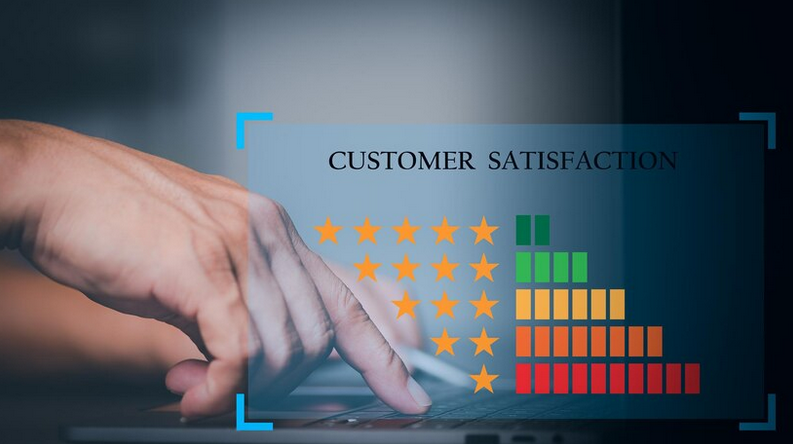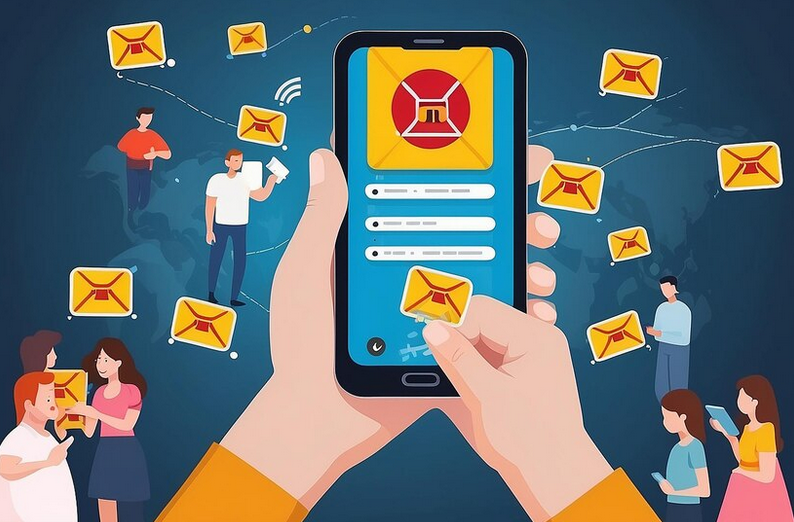How an online store can use anti-crisis PR to restore its reputation: Practical advice
-
Vladimir Kosygin
Copywriter Elbuz
The online store faced an unexpected storm. In an instant, the reputation that had been built over the years began to crumble. How to regain customer trust and avoid collapse?

Glossary
- 🎯 Anti-crisis PR: A set of measures to restore and improve the company’s reputation in times of crisis .
- 🌐 Online store: Online platform for selling goods and services via the Internet.
- 🔍 Monitoring: The process of tracking mentions of a company in the media space.
- 📊 Data Analysis: Evaluate collected information to determine the causes and extent of the crisis.
- 🚀 Implementation of strategy: Implementation of a developed action plan to minimize the negative impact of the crisis.
- 🛡️ Neutralization of negativity: Measures to eliminate or reduce negative consequences for reputation.
- 💬 Social platforms: Popular online resources for communication and information sharing (for example, Facebook, Instagram, Twitter) .
- 🌟 Brand Advocates: Loyal customers who are ready to actively defend and support the brand.
- 📣 Spreading Positive Information: Create and promote content that highlights the positive aspects of the company.
- 🗣️ Create an environment for communication: Events or platforms where customers can share their experiences and feedback.
- 🤝 Audience Engagement: Actively communicate and work with customers to improve their user experience and increase loyalty.
Reasons for the deterioration of an online store's reputation and anti-crisis PR methods
When I first encountered an increase in negative reviews in my online store, I realized how serious the consequences could be for a company's reputation. The first warning signs were an increase in the number of complaints about the quality of service and products. This happened after a change in personnel and suppliers.

🔥 The main reasons for the deterioration of reputation:
- 📉 Reducing the geography of work or disabling services - when I decided to switch to a limited delivery geography, we immediately faced a wave of indignation from customers.
- 💸 Increasing prices without compelling reasons - I once increased the prices of popular items without prior explanation, and this caused a negative reaction among consumers.
- ❌ Elimination of referral and affiliate programs - the refusal of profitable affiliate offers also had a painful impact on customer loyalty.
- ✋ Refusals to exchange or return goods - every case when a client encounters difficulties in returning or exchanging leaves a stain on the reputation.
- 🚚 Regular delays in delivery times and confusion in orders are one of the most common complaints that we had to deal with.
🛠 How I managed to overcome these problems:
📊 Step 1: Monitoring and processing reviews
I realized that ignoring complaints only makes the situation worse. Therefore, I implemented a review monitoring system and immediately responded to all negative comments. By regularly reviewing reviews on our website and third-party platforms, I tried to identify issues and resolve them quickly.

I encourage you to pay special attention to even the smallest signals of dissatisfaction.
💬 Step 2: Open dialogue with clients
I began to actively communicate with clients, offering them the opportunity to express their wishes and comments. This helped not only improve the quality of service, but also showed that their opinion is really important to us.
I believe that open dialogue can defuse tensions and build bridges of trust.
📉 Step 3: Loyalty programs and promotions
To regain customer trust, I created several atmospheric promotions and profitable offers that enabled consumers to once again feel the benefits of shopping in our store.

I would recommend that you consider implementing shares and discounts during periods of crisis.
📈 Step 4: Improving logistics and courier services
We have completely revised logistics and improved reliability of courier services. Delivery failures are now rare, and this has significantly improved our rating.
I am convinced that following a clear plan for improving logistics will help avoid many problems.
👥 Step 5: Staff training and education
I conducted a number of training programs for employees so that they are ready to correctly and competently respond to any conflict situations with clients.

I encourage you to focus on training your team . It pays off many times over.
📉 Table: Best and Ineffective Practices
| Practices | Useful | Not recommended |
|---|---|---|
| Processing reviews | ✅ Yes, monitoring and response to reviews | ❌ Ignore complaints |
| Direct dialogue | ✅ Open conversations with clients | ❌ Lack of feedback |
| Loyalty programs | ✅ Promotions and discounts | ❌ Excluding them completely |
| Logistics | ✅ Improvement and reliability | ❌ Poor organization |
| Trainings | ✅ Staff training | ❌ Refusal from training |
So, I am sure that competent anti-crisis PR is not only a fight against negativity, but also an opportunity to turn it into a positive experience for client. I encourage you to look at problems as points of growth and use methods that will help not only restore, but also strengthen the reputation of your online store. 🔄

Damage to an online store from reputational losses
I can confidently say that reputational losses can cause serious damage to an online store. In my experience, I have encountered the following consequences that arise when reputation deteriorates:
📉 Reduced dynamics of attracting new consumers: One of the most obvious consequences of a bad reputation is the loss of new customers. Every time potential buyers see a lot of negative reviews, they simply go to competitors. In one of my projects, we noticed that the share of new customers decreased by 35% after a series of negative reviews for one of the products.

👥 Loyal customers leaving: The term "loyal customers" in this context becomes a temporary concept. I have seen even the most loyal customers stop ordering after experiencing problems and service shortcomings. In one of my projects, repeat sales fell by 20% after logistics incidents went wrong.
🤝 Deteriorating relationships with suppliers and brands: Another critical aspect is deteriorating relationships with suppliers. Many brands will not want to work with a store with a bad reputation. In one project I was involved in, three major suppliers stopped working together, resulting in a significant drop in inventory.
📉 Loss of trust and reduced effectiveness of advertising communications: Word of mouth ceases to exist when customers no longer trust your brand. My project had to completely rethink its communications and advertising spend strategy as the credibility of our messaging and advertising campaigns had dropped significantly.
🔍 Difficulties in recruiting: Experience has shown that potential employees are wary of companies with a negative reputation. On one of my projects, we recorded the attribution of more than 50% of vacancies during the period when the reputation was damaged.

How to prevent these losses? 🔧 I am convinced that in order to prevent reputational losses, it is necessary to monitor negative trends from the very beginning. These could be:
- Negative Review Tracking: I recommend monitoring mentions of your brand and prompt response to customer comments and reviews.
- Creating a good customer experience: It is important to immediately address any customer issues, whether late delivery or incorrect placing an order.
- Supplier Communication: I recommend maintaining transparent and honest communication with suppliers and brands to build trust with them.
- Developing strategies to improve our image: In our case, we implemented a loyalty program and activated content marketing to improve our image .
Timely reputation management and transparent communication with clients and partners can significantly reduce negative consequences.

Review useful and unproductive practices
| Useful practices | Unproductive practices |
|---|---|
| 📊 Monitoring reviews and prompt response | ❌ Ignoring customer opinions |
| 👥 Development of customer loyalty programs | ❌ Inaction in critical situations |
| 📞 Direct and transparent communication with suppliers | ❌ Underestimation of the importance of reputation |
| ✍ Review and improvement of logistics processes | ❌ Lack of image improvement strategy |
I highly recommend paying attention to the above steps and implementing them into your practice to increase customer trust and loyalty.
ORM technology components
Application of ORM technology (Online Reputation Management) for online stores allows you to effectively manage the reputation and perception of the company in the event of a crisis. I can share my experience of using ORM, which has helped me more than once avoid reputational losses.

⚙️ Step #1. Monitoring
At the first stage, it is important to monitor mentions of an online store on the Internet. I would advise you to analyze not only popular review sites and forums, but also social networks and online media. Here are the tools I used for this purpose:
- 🔍 Bing and Google - manual search for mentions.
- 🤖 Automatic parsers (for example, Youscan and Zoho Social) - allow you to quickly collect and analyze data by keywords, related to your business.
- 📞 Analysis of messages from clients - received via phone, chat, e-mail and social networks.
Case study: In one of the projects I used Youscan to monitor social media and online media. The tool not only collected all mentions, but also determined the emotional tone of the messages. This allowed me to quickly identify negativity and respond to it.
Table:
| What's good to do | What's not to do |
|---|---|
| Use automatic parsers | Ignore minor reviews |
| Conduct regular monitoring | Limit yourself to only one source |
📊 Step #2. Analysis and processing of collected data
Once the data has been collected, it needs to be carefully analyzed. I always take into account who the author of the reviews is: clients, partners or competitors. Recognizing manipulation is important at this stage.

- 🛠 Tools:
- Distinguish real reviews from those written for the purpose of discrediting.
- Pay attention to abstract reviews that do not provide specific information about the purchase or dates.
Example from practice: I remember how in one of my projects there was a flurry of negative reviews on Google.Maps. They all arrived in one period and were extremely negative, but without specifics. Through analysis, I found out that this was an attempt by a competitor to damage the reputation of our online store.
Table:
| What's good to do | What's not to do |
|---|---|
| Check reviews for specifics | Ignore the barrage of negative ratings |
| Recheck data | Skip attention to small details |
🚀 Step #3. Implementing an anti-crisis PR strategy and neutralizing negativity
Once negative or slanderous reviews have been filtered out, you should begin managing search results. I recommend the following steps:
📈 SERM Method (Search Engine Reputation Management):
- Change search results, displacing negativity to distant pages.
- Increase the number of positive mentions.
- Increase the amount of content.

🌐 Social networks and forums:
- Publish informational and commercial articles with branded keywords.
- Increase the number of reviews, paying attention to their naturalness.
Example from practice: In one of the campaigns of my online store, we launched a series of publications on popular platforms such as Habr and Facebook. This helped us not only promote positive mentions, but also create a healthy information environment around the brand.
Table:
| What's good to do | What's not to do |
|---|---|
| Publish quality content | Use blatantly fake reviews |
| Act on different platforms | Limit to only one channel |
Ultimately, if you follow these steps, You can significantly improve the reputation of an online store even after a serious reputational crisis. I am convinced that proper anti-crisis PR can not only save, but also strengthen the position of your business.

Effective measures to prevent repeated deterioration of the reputation of an online store
Official representatives on popular social platforms
One of the key methods that I recommend implementing to improve the reputation of an online store is the creation and active management of official profiles on popular social platforms. When customers have a bad business experience, they are likely to share their thoughts on social networks such as Facebook, Tik-Tok, Telegram and Instagram. In practice, I always recommend starting with these sites, since they are the most visited by our target audience.

I remember an incident where in one of the projects I was working on, customers actively left negative reviews on OtzyvUa.net. We created company profiles on these platforms, and two team representatives regularly monitored mentions of the company and promptly provided qualified support. One illustrative example is our work on a review site, where we responded not just with boilerplate phrases, but actually helped solve customer problems, which significantly improved our perception in the eyes of users.
Representative response example: "We sincerely regret that your experience with our online store did not meet your expectations. Please provide us with your order number so that we can investigate your situation and offer a solution. We value your feedback and do our best to improve our services."
⭐️ Useful recommendations:
- 🤝 Creating accounts on major platforms
- 🕵️ Daily monitoring of mentions
- ✍️ Individual and sincere responses to reviews
Encouraging brand advocates and spreading positive messages
Implementing one of best anti-crisis PR practices, I recommend actively encouraging brand advocates and spreading positive information. In my practice, I have found that publishing at least two or three times a month with positive news about products, social activities and launched initiatives significantly improves brand perception.

When I was working on a project for one of the large online stores, we developed reward program for brand advocates. They received bonuses, gifts and free shipping for participating in discussions and writing reviews. This encouraged them to recommend our store to friends and acquaintances. The result was an increase in loyalty and improved positions in search results for brand queries.
Call to action: "Join our loyalty program and receive unique bonuses for your support!"
⭐️ Useful recommendations:
- 📣 Regular publications of positive news
- 🎁 Incentives for brand advocates
- 🔝 Improvement search results
Creating an environment for communication
So that clients have the opportunity to communicate freely and express your opinion, I recommend creating a platform for communication. In one of the projects, we created a blog and chat where clients could discuss their questions and receive answers from our employees. This not only helped keep customers on our platform, but also allowed us to quickly respond to problems that arise.

An excellent example of this approach is the Rozetka chat, where users can informally communicate, share experience and get answers to your questions. As a result, we see an increase in customer engagement and loyalty.
Real example: "We created a chat to quickly exchange opinions and solve problems, which has significantly improved interaction with our customers."
⭐️ Useful recommendations:
- 🖥️ Creating a blog or chat
- 🗣️ Active participation of employees in discussions
- 📈 Increased customer engagement
Interaction with the audience
A very important aspect of working with the audience is timely feedback and notification of upcoming changes. In one of my projects, we notified clients at least a week before changes in assortment or conditions of the affiliate program. We sent emails, instant messages, or called directly. This approach minimized the number of negative comments and reduced the burden on technical support.

Admitting your mistakes is especially important. I always insist that a public apology and explanation of the error greatly improves customer perception of the company. For example, one day our online store encountered a problem with delayed deliveries. We publicly apologized and offered compensation, which helped us maintain customer trust.
Real example: "We notified clients in advance about planned changes, which significantly reduced number of negative reviews."
⭐️ Useful recommendations:
- 📬 Timely notification of changes
- 📞 Personal calls to clients
- 😇 Public recognition errors
| Measures | Recommendations | Examples/Results |
|---|---|---|
| Official Profiles | Active Management and Monitoring | Creating profiles on OtzyvUa.net, Facebook |
| Brand advocates | Incentive program, news publications | Increasing loyalty and improving SEO |
| Communication environment | Creating a blog, chat, club | Example of a DNS club, increasing engagement |
| Interaction | Change notification, error recognition | Negative reduction, TP optimization |
I am confident that correctly implementing these methods will help you significantly strengthen the reputation of your online store and maintain customer loyalty.

Effectively working with negative reviews and objections
From my own experience I am convinced that working with negative reviews and objections is a key element of anti-crisis PR. I believe that avoiding and ignoring such reviews only exacerbates the problem and leads to further deterioration of the reputation. Therefore, I always recommend actively addressing these issues and I can confidently say that this approach brings positive results.

I give an example of one of the projects where an online store was in a crisis situation due to many negative reviews about product quality and service level. We started by drawing up an action plan, and the first step was to systematically handle all negative comments.
🔍 Steps to deal with negative reviews:
- 🚀 Prompt Response: I recommend responding to negative reviews as quickly as possible - ideally within 24 hours. This shows customers that their opinion matters and you are willing to solve problems when they arise.
- 📞 Sincere Contact: Contact unhappy customers directly. I always recommend doing this whenever possible via private messages or calls to discuss the details and propose a solution.
- 🛠️ Error Correction: It is important to admit your mistakes and offer solutions. For example, in my case, fixing a problem in product delivery helped relieve tension and regain customer trust.
- 🎁 Compensation and Incentives: Offer customers some bonuses or special offers to compensate for their inconvenience. This could be an additional discount or free shipping on your next order.
- 🎤 Public Replies: Provide detailed responses to negative reviews on public platforms, explaining what measures have been taken. I believe that transparency and a willingness to solve problems creates a positive image.
.gif)
📊 Successful use of anti-crisis PR methods in practice :
| Useful methods | What not to do |
|---|---|
| React quickly | Ignore negative reviews |
| Admit mistakes | Make excuses without real action |
| Contact personally | Answer formulaically and dryly |
| Offer compensation | Promise the impossible |
| Give clarifications publicly | Delete or hide negative comments |
Sure, all this work requires It takes a lot of effort and time, but I am convinced that in the long run it brings positive results and restores the lost trust of clients.

Expertise Fnac
Fnac is a large French chain of stores specializing in the sale of electronics, books, music and entertainment products . The company operates both offline and online, representing one of the largest online stores in Europe. Fnac's main goal is to provide a wide range of products and a high level of service to customers, thereby strengthening their brand and reputation in the market.

Main goals and objectives
Fnac's goals for anti-crisis PR are to prevent reputational losses and restore customer trust in the event of negative incidents. Key tasks include:
- 🛠 Monitoring brand mentions online.
- 📊 Analysis of negative reviews and comments.
- 🚀 Quick and effective response to crisis situations.
- 📣 Active communication with clients through social networks and other platforms.
Problem
In 2023, the company faced a serious reputation crisis caused by missed delivery deadlines orders during the Christmas sales period. This resulted in massive customer complaints and negative reviews on social media, which negatively impacted their trust in the Fnac brand.
Main characteristics and interests of the target audience
The target audience of "Fnac" includes people aged 18 to 55 years interested in electronics and other goods. They actively use the Internet to shop and read reviews of companies, making online reputation extremely important.
- 💡 Awareness: Customers expect strict compliance with delivery conditions and quality of service.
- 📱 Activity: Users are active on social networks and forums.
- 🎨 Interests: Main interests include consuming content such as books, music, movies and electronics.

Key points that may be of interest to potential clients
- 📞 Quality of service: Quick resolution of customer problems.
- 🚚 Delivery times: Reliability and accuracy in the delivery of orders.
- 🔍 Transparency: Open and honest communication with customers.
Specific results of the project
Fnac has taken a number of steps to restore its reputation:
- 📉 Reduction of negative mentions by 50% within the first three months after implementing the strategy .
- 📈 Increase in customer satisfaction by 20% according to survey data after delivery times were restored.
- 📊 Increase customer engagement by 35% on social media.
Overview table
| Goal | Action | Result |
|---|---|---|
| Mention monitoring | Using monitoring systems | Reduce negative mentions by 50% |
| Analysis of negative reviews | In-depth analysis of comments and complaints | Understanding the main problems |
| Communication with clients | Active participation in discussions and conflict resolution | Increase in loyalty by 20% |
| Feedback and service improvement | Implementation of a system for rapid feedback and process adaptation | Increasing customer satisfaction |
"Our anti-crisis PR efforts have allowed us to regain customer trust and significantly improve their perception of the company. Thanks to the coordinated efforts of our team, we have achieved impressive results and restored our reputation in the market." - Juliette Dupuis, Chief PR Manager, Fnac.
The steps taken by Fnac are an excellent example of how effective anti-crisis PR can quickly overcome reputational losses and strengthen customer trust
Frequently asked questions on the topic: How can an online store use anti-crisis PR to restore its reputation - Practical advice
Why might an online store's reputation deteriorate?
How much damage can reputational losses cause to an online store?
What stages does the development and implementation of an anti-crisis PR strategy include?
How is the reputation of an online store monitored?
What is included in the analysis and processing of collected data?
How to implement an anti-crisis PR strategy?
How to prevent the reputation of an online store from deteriorating again?
What functions do official representatives perform on social platforms?
How to encourage brand advocates and spread positive messages?
How to create an environment for communication and interaction with the audience?
Thank you for your attention and your intelligence
Having read all the material, you already have a powerful arsenal of knowledge about anti-crisis PR 🎯. Now you are not just a reader, but a real expert in this matter. The real methods and strategies that I have described will help you overcome any crises on the way to the success of your online store. Good luck to everyone and don’t forget: even in difficult times there is a way out! Let me know in the comments what you think about it.
Author: Vladimir Kosygin, independent expert, Elbuz. “Words are tools, and my mission is to breathe life into online store automation. Welcome to the world of my texts, where every line fills the business with meaning and efficiency.”
.gif)
- Glossary
- Reasons for the deterioration of an online store's reputation and anti-crisis PR methods
- Damage to an online store from reputational losses
- ORM technology components
- Effective measures to prevent repeated deterioration of the reputation of an online store
- Effectively working with negative reviews and objections
- Expertise Fnac
- Frequently asked questions on the topic: How can an online store use anti-crisis PR to restore its reputation - Practical advice
- Thank you for your attention and your intelligence
Article Target
Explain how online retailers can use crisis PR to restore their reputation.
Target audience
online store owners, PR and marketing managers, entrepreneurs
Hashtags
Save a link to this article
Vladimir Kosygin
Copywriter ElbuzWords are tools, and my mission is to breathe life into online store automation. Welcome to the world of my texts, where every line fills business with meaning and efficiency.
Discussion of the topic – How an online store can use anti-crisis PR to restore its reputation: Practical advice
Strategies and methods of anti-crisis PR that can help online stores restore and improve their reputation if it deteriorates: practical recommendations.
Latest comments
15 comments
Write a comment
Your email address will not be published. Required fields are checked *
Stay up to date with news
No spam, only useful information about the latest updates and exclusive content!
Take the test and get a free certificate!
Anti-crisis PR for an online store: Expert Questionnaire
Next
Secrets of getting free advertising in the media: methods and tips
Free advertising in the media – is it possible? Let's say you have a unique story, important news...
Text sculptor Elbuz
How video marketing helps attract customers and increase sales
- marketing
- 529
What if you could attract more clients without spending hundreds of hours on marketing? Video mar...
Copyright specialist Elbuz
10 necessary steps to creating a successful online store
- E-commerce
- 978
The algorithm for creating an online store may seem complicated and confusing, but don't worry! I...
Text Magician Elbuz
Where and how to sell an online store profitably: Your complete guide
Selling an online store at a good price is the dream of many entrepreneurs. But where to start? H...
Word artist Elbuz
Mistakes when working with marketplaces: how to avoid and achieve success
- E-commerce
- 871
In the world of online trading, there is one place where millions of buyers and sellers converge....
Text shaman Elbuz
Icons for an online store: a necessary element of UX design
- Design and UX
- 921
Improving user experience (UX) is an important task for every online store owner. And this is whe...
Text alchemist Elbuz
The best recommendations for successful adaptation of a newcomer to the team
It all starts with the first step. This is the moment when a newbie steps into the office and the...
Literary magician Elbuz
Mistakes that will bankrupt your online store: top bad advice
Do you want to know how to destroy your online store yourself? Then fasten your seat belts as we ...
Literary calligrapher Elbuz
How to survive in a crisis: Anti-crisis marketing for online stores
- Marketing
- 447
When crisis knocks on the door, only those who are prepared for the unexpected emerge victorious....
Text Architect Elbuz
10 effective tips for organizing time while working from home
- Distant work
- 980
One day, one apartment and tons of work. How to cope? How to find focus and organize your work ti...
Word artist Elbuz
Secrets of effectively scaling an online store
- E-commerce
- 710
The magic of success screams all around us, and only those brave or crazy enough can focus on it....
Literary inspiration Elbuz
How to make a video advertisement for an online store go viral?
- Marketing
- 1367
We all want our offer to be irresistible - seductive, memorable, something you want to tell every...
Text creator Elbuz

























Vladimir Kosygin
Colleagues, let's discuss anti-crisis PR for online stores. What methods do you think will work best?
Thomas
Vladimir, I think it is important to immediately respond to negative reviews and comments. This shows that the store cares about its customers.
Elena
Thomas, I completely agree. You can also offer discounts and bonuses to customers in case of problems. 🎁
Anna
Elena, this is a good idea! But sometimes it’s better to just admit the mistake and show that the store learns from its mistakes.
Giovanni
Anna, absolutely! Transparency and honesty can go a long way toward increasing a store's credibility.
Hans
These tricks of yours don't work at all. A discount here, a bonus there. Customers just love freebies, not care.
Fernando
Hans, wow, you have extreme views. But each approach has its pros and cons. In our practice, it was discounts that often brought customers back.
Lucie
Fernando, that's right. It is also important to work to identify the root causes of problems and prevent their recurrence.
Oksana
Lucie, great advice! What about using social media to restore your reputation? Has anyone tried it?
Vladimir Kosygin
Oksana, social networks are truly a powerful tool. They make it easy to delight and engage your audience. It is only important to be able to use them correctly.
Karol
And in Poland we often launch viral videos to improve our image. Works great! 📹
Elena
Carol, great idea! I love unexpected approaches like this!
Thomas
You can also use reviews from real users and case studies as proof of quality work.
Giovanni
Thomas, reviews are power! Especially if they are honest and from real clients. This creates a word of mouth effect.
Hans
Constant talking shop, but no sense. Every client wants to see specific actions, not promotions.